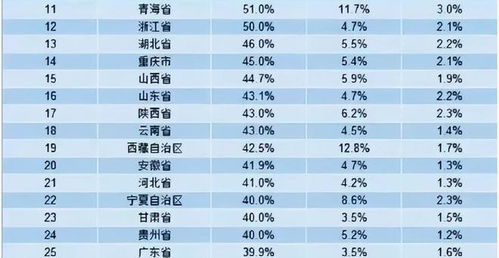Types of High Schools

When considering "有什么高中学校," it's essential to understand the various types of high schools available, each offering unique advantages and specialized programs. Generally, high schools can be categorized into public schools, private schools, charter schools, and magnet schools.
Public schools are funded by government sources and are free to attend for students within the relevant district. They offer a standard curriculum set by the state's education department and have diverse student populations. These schools often have a wide range of extracurricular activities, advanced placement (AP) courses, and special education programs.
Private schools, on the other hand, require tuition fees and are not reliant on government funding. They may have religious affiliations or follow a distinct educational philosophy, such as Montessori or Waldorf. Private schools often boast smaller class sizes, specialized programs, and a high rate of college matriculation.
Charter schools are independently operated public schools that have more flexibility in their curricula and teaching methods compared to traditional public schools. They are usually founded by teachers, parents, or community groups based on specific educational visions or pedagogical approaches. Admission is often determined by a lottery system.
Magnet schools are public high schools with specialized curriculums focused on areas like science, technology, engineering, and mathematics (STEM), performing arts, or international studies. These schools attract students from various districts and usually require an application process that can include tests, auditions, or interviews.
Factors to Consider in Choosing a High School
When evaluating "有什么高中学校" for your child or yourself, several crucial factors should be considered to ensure the best educational experience. Academic programs are one of the most significant factors. Make sure to review the courses offered, including AP classes, electives, and special programs. Consider what aligns best with the student's interests and future goals.
Another important factor is the location and commuting distance. Some schools may have excellent programs but are located far away from your home, making daily commuting a challenge. Evaluate the transportation options available and consider the impact on the student's daily routine.
The school environment and culture should also be taken into account. Visit the schools, if possible, to get a sense of the atmosphere. Talk to current students and teachers to understand the school's values, disciplinary policies, and sense of community. A supportive and welcoming environment can significantly enhance the educational experience.
Extracurricular activities and support services are equally important. Schools with robust programs in sports, arts, clubs, and other activities provide opportunities for students to develop their talents and interests beyond academics. Additionally, look for schools that offer student counseling, tutoring, and college preparatory services.
Noteworthy High School Programs and Schools
In the realm of "有什么高中学校," there are several exemplary programs and schools worth mentioning due to their high academic standards, diverse opportunities, and outstanding reputations. Some well-known high schools in major cities often serve as benchmarks for quality education.
In New York City, Stuyvesant High School and Bronx High School of Science are renowned for their rigorous academic programs, focusing extensively on STEM education. Likewise, Thomas Jefferson High School for Science and Technology in Alexandria, Virginia, consistently ranks among the top high schools in the country.
In the realm of private education, Phillips Exeter Academy in New Hampshire and Harvard-Westlake School in Los Angeles are prestigious institutions known for their high college acceptance rates and distinguished alumni. These schools often provide numerous resources, such as state-of-the-art facilities, extensive libraries, and opportunities for international study.
For charter schools, Success Academy Charter Schools in New York City and BASIS Charter Schools in Arizona represent successful models, showcasing high student performance and innovative teaching methods. These schools often serve as examples of how charter schools can provide quality education in diverse and often under-served communities.
Magnet school programs like those within the Houston Independent School District or the Chicago Public Schools system attract students from various backgrounds and bring a wealth of educational opportunities in specialized fields. These schools prepare students exceptionally well for college and future careers through focused curricula and comprehensive educational experiences.
FAQs
Q: What is the difference between public and private high schools?
A: Public high schools are funded by the government and free for students in the district, offering a standard curriculum. Private high schools require tuition fees and may have religious affiliations or unique educational philosophies with often more specialized programs.
Q: How do charter schools differ from traditional public schools?
A: Charter schools are independently operated public schools with more curricular and teaching method flexibility. They are often founded based on specific educational goals by teachers, parents, or community members.
Q: What should I consider when choosing a high school?
A: Important factors include academic programs, location and commuting distance, school environment and culture, and available extracurricular activities and support services.
Q: Can you name some prestigious high schools in the U.S.?
A: Noteworthy examples include Stuyvesant High School and Bronx High School of Science in NYC, Thomas Jefferson High School for Science and Technology in Virginia, and Phillips Exeter Academy in New Hampshire.
Q: What are magnet schools?
A: Magnet schools are public high schools with specialized curriculums in areas like STEM, performing arts, or international studies. They attract students from various districts and often require an application process.









